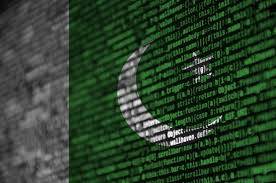
In Pakistan, the landscape of elections is often unpredictable, with outcomes and events that seem quite surprising. Media and social media platforms become sharply polarized battlegrounds during these pivotal times. In the 2024 election, Imran Khan's party, PTI, faced significant challenges. Imran Khan's PTI faced significant challenges during the 2024 election. The media boycotted him, and the Pakistan Electronic Media Regulatory Authority (PEMRA) even made mentioning his name punishable.
In response, PTI turned to social media as a powerful weapon. They organized virtual rallies (jalsas) and creatively used AI-generated audios of Imran Khan to boost their campaign.
Beyond PTI's strategic use of social media, social media was misused during the same election. Despite PTI's positive intentions, AI has flaws. It is considered the biggest threat to humanity today.
Disinformation involves "false information that is created and spread, deliberately or otherwise, to harm people, institutions, and interests." While misinformation results from unintentional errors, disinformation is intentionally deceptive
In Pakistan During elections, due to many factors, such as illiteracy and the lack of legalization of social media, misinformation is widely used to sway public opinion. False narratives, especially on social media, are used to change voter intentions about candidates, leading to unexpected results.
In the recent election, large-scale attempts at disinformation were evident. A PTI-backed independent candidate, Raja Basharat, was targeted with a deepfake video that falsely showed him quitting politics, aiming to disrupt public discourse and influence votes.
Another deepfake video featured PTI founder Imran Khan calling for a boycott of the contests one day before election. Despite being false, it created confusion and disillusionment among voters. Subsequently, PTI leadership declared it a hoax.
The use of false information during crises, such as wars and elections, to shape public opinion is not new and has long been a part of propaganda. However, the rise of internet access has made it easier to mislead people with incorrect information.
The experts say social media helps modern leaders, like Erdoğan, Narendra Modi, and Donald Trump, to make emotional connections and spread fake news due to a huge following on social media .
In Pakistan, Imran Khan's PTI party actively uses social media for its political goals. Following a no-confidence vote that ousted Imran Khan's government, PTI has been accused of fabricating stories about U.S. conspiracies against Khan's administration which helps them to divert attention of people from their own performance from 2017 to 2022 . While U.S. interference remains a conspiracy theory, PTI has managed to create a narrative despite opposition from mainstream media
In Pakistan Misinformation in Pakistan is not only a political but a multifaceted issue, influenced by the country's complex social, and technological landscape.
Pakistan's political environment is characterized by sharp divisions across ideological, ethnic, and religious lines. These divisions often lead to the creation and circulation of tailored narratives that serve specific political or ideological ends. For instance, during election times, it's not uncommon for political parties to disseminate misleading information about opponents, exploiting existing prejudices or biases within certain voter groups to gain an advantage.
The internet is expanding rapidly in Pakistan, more people are getting their news from social media platforms where the authenticity of information is not always verified. This has led to the viral spread of false information. A case in point is the spread of health-related misinformation during the COVID-19 pandemic, where unverified home remedies and conspiracy theories about the virus's origins and vaccines proliferated, often overshadowing factual public health messages.
These examples underscore the challenges posed by misinformation in Pakistan, highlighting the need for robust measures to promote media literacy and fact-checking in news platforms to mitigate the impact of false information on society.
In May 2023, Pakistan took a significant step towards technological advancement by formulating its first AI policy. This initiative is part of a broader effort to foster growth within the country. However, the policy is not without its shortcomings. It has been criticized for lacking comprehensive stakeholder involvement and for missing critical perspectives that are essential for a well-rounded policy.
The government's slow pace in adopting digital changes poses another challenge, hindering the effective implementation of the AI policy. Concerns have also been raised about internet infrastructure issues, which could potentially undermine confidence in the burgeoning AI market. Critics argue that the policy seems to be more aspirational than practical, suggesting that it may not have been thoroughly considered.
The impact of AI on democracy is contingent upon the manner in which it is developed and utilised. It is crucial for policymakers, researchers, and technology experts to collaborate closely to ensure that AI is employed in ways that are ethical, fair, and supportive of democratic principles.
Moreover, the issues of misinformation and manipulation present significant challenges to democracy in Pakistan. As a developing nation grappling with intolerance and illiteracy, these challenges are exacerbated. It underscores the necessity for informed and thoughtful policy-making to cultivate a peaceful and enlightened society.

